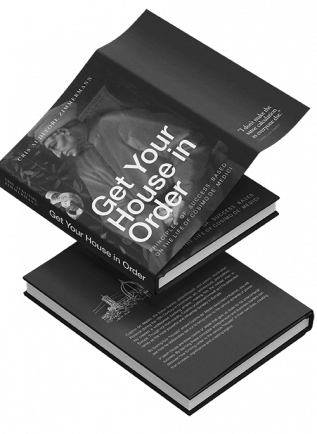[Podcast Episode #13] The Hardest Truth About Money Nobody Wants to Hear

Episode #13
Could your frugality be sabotaging your success? In this thought-provoking episode, the Medici brothers challenge conventional wisdom with what they call “the hardest truth about money nobody wants to hear” – you must spend money to make money, and you must do it before you think you can afford it.
Some topics covered are:
- Unlimited Budgets for Growth
- Invest Before You’re Ready
- The Cost of Being Cheap
- The Power of High-Level Rooms
- Value Your Time Like Money
- A-Players Are Non-Negotiable
- Feed Your Mind Daily
- And more…
Episode Summary
In an age dominated by cost-cutting and risk aversion, Cris and Philip embody a Medici principle that runs counter to modern financial orthodoxy: you must pay before you think you can afford it. This is not just a strategy—it’s a mindset shift that separates builders from visionaries.
Cris first embraced this principle as a teenager, when he set what he called an “unlimited book budget.” Despite having limited means, he made the decision to buy any book that could shape his thinking, regardless of the price tag. That single decision laid the foundation for how he would later approach business and life. In his twenties, that philosophy evolved into an unlimited travel budget. He would cross countries for a lunch meeting if he believed the relationship held promise. To outsiders, it looked reckless. But over time, these intentional investments—made without the safety net of immediate returns—compounded into extraordinary results.
The truth Cris discovered early on is this: transformation doesn’t happen when you’re comfortable or when the numbers add up neatly in your spreadsheet. It happens when you act from vision, not circumstance.
And yet, too many entrepreneurs today consume free content hoping for paid-level outcomes. Philip often warns of the “fast food mindset”—snacking on social media while starving for substance. It’s a pattern they believe Cosimo de’ Medici would have found foolish. Cosimo spent lavishly on books, on thinkers, on artists. He knew that knowledge and inspiration aren’t expenses—they’re accelerators.
One of the most striking parallels Cris draws is from modern business hiring. Many entrepreneurs try to save money by hiring B-level talent for frontline roles. But that “savings” often costs them growth, morale, and client trust. He loves to quote the Charles Schwab anecdote: the executive who earned a million-dollar salary simply to think—and whose ideas yielded tens of millions. Cris sees this not as indulgence, but wisdom.
Philip has lived this lesson personally. Once, attempting to save €75, he bought a cheap phone holder for his Vespa. It failed. The fix ended up costing €400, not including lost time and aggravation. That, he says, is the true cost of being “cheap”: distraction, rework, and delayed progress.
He’s observed the same pattern in businesses. A team member spends two hours to “save” €50—when their hourly rate is €60. The math doesn’t lie, and neither does the energy lost on low-value tasks.
Cris and Philip’s philosophy, rooted in both Medici thinking and modern entrepreneurship, is clear: strategic spending isn’t wasteful—it’s wise. Especially when directed toward learning, relationships, or talent. As they often say, the issue isn’t whether you can afford it now. The real question is whether you can afford not to.
So here’s the rule they live by, the same one Cosimo practiced centuries ago: pay before you think you can afford it. That’s where growth begins.

Get a free copy of "Get Your House in Order"
Principles of success based on the life of Cosimo de’ Medici by Cris Auditore Zimmermann
